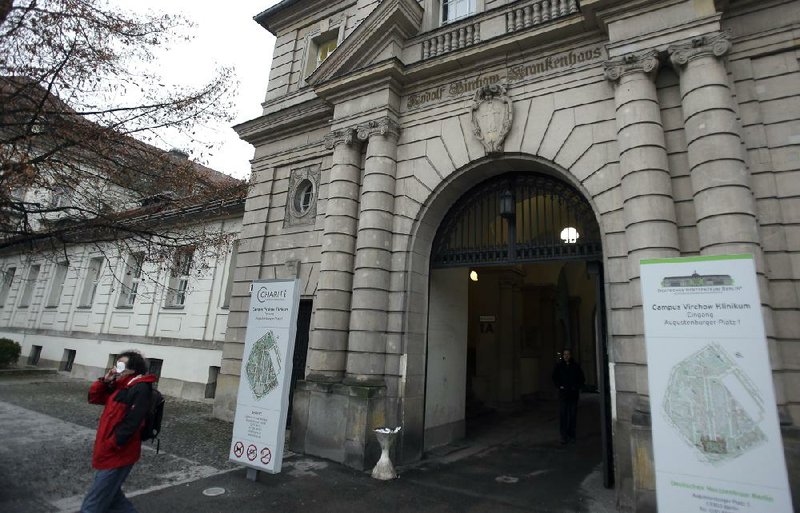BAGHDAD — Iraq’s finance minister on Thursday accused a “militia force” of kidnapping members of his staff, saying he holds the prime minister personally responsible for their safety.
Finance Minister Rafia al-Issawi leveled the accusations just hours after Iraq’s ailing president was flown to Germany for medical treatment after a stroke. The 79-year-old president, Jalal Talabani, is widely seen as a unifying figure who is able to rise above Iraq’s often bitter politics and mediate among the country’s ethnic and sectarian groups.
Al-Issawi made the accusations in a late-night news conference. The move is certain to inflame Iraq’s ongoing political tensions, which have been heightened since an arrest warrant was issued against one of al-Issawi’s political allies a year ago.
Al-Issawi is a member of the Sunni-backed Iraqiya bloc, Prime Minister Nouri al-Maliki’s main political rival. He was flanked by senior members of the bloc during the televised address.
A spokesman for al-Maliki, whose government draws support from Iraq’s Shiite majority, could not immediately be reached for comment.
A year ago, bodyguards assigned to another senior member of Iraqiya, Sunni Vice President Tariq al-Hashemi, were detained. Shortly afterward, an arrest warrant was issued against al-Hashemi accusing him of orchestrating death squads — a charge he dismisses as politically motivated.
Al-Hashemi initially stayed at a guesthouse belonging to Talabani, but later fled the country and is now living in neighboring Turkey. Iraqi courts have since found him guilty in absentia and handed down multiple death sentences against him.
Earlier Thursday, Iraq’s stricken president was flown to Germany for further medical treatment after a stroke.
Iraqi Foreign Minister Hoshyar Zebari said doctors have determined the president had a “very serious stroke,” but that he is showing signs of improvement.
“He is starting to regain his senses. He is able to feel pain, and this is a sign of progress,” Zebari said.
Talabani’s spokesman, Nasser al-Ani, said the president is able to move some of his limbs and communicate with simple signals, but is unable to speak.
The decision to move Talabani to Germany was made after his condition was stabilized and he began to show signs of improvement, according to Iraqi officials.
Vice President Khudier al-Khuzaie, an Arab Shiite, will temporarily assume Talabani’s duties during his absence, Zebari said.
Iraq’s parliament has the authority to choose a new president should Talabani’s office become vacant. The Kurds would likely insist on retaining the presidency to maintain the government’s power-sharing balance.
Berlin’s Charite hospital, the German capital’s largest, confirmed Thursday that Talabani had been admitted to its Virchow Clinic but wouldn’t give any details on his condition nor what he was being treated for, citing patient confidentiality.
In a statement on its official website, Talabani’s office said the treatment he underwent in Baghdad “provided the right conditions for the transfer of (Talabani) out of the country for follow-up treatment in Germany.” It gave no further details on his condition.
The presidency of Iraq is largely a ceremonial role. Al-Maliki is the head of the government.
Talabani is overweight and has undergone several medical procedures in recent years, including heart surgery in 2008 and knee-replacement surgery this year. He has previously received treatment in Germany.
Before he fell ill, Talabani was actively involved in trying to mediate in a crisis between Baghdad and the Kurds, who have their own fighters and considerable autonomy in their enclave in northern Iraq. The two sides last month moved additional troops into disputed areas along the Kurds’ self-rule region, prompting fears that fighting could break out.
Last week, Talabani brokered a deal that calls on both sides to eventually withdraw troops from the contested areas, though there was no timetable for how soon the drawdown might take place.
Information for this article was contributed by Sinan Salaheddin, Qassim Abdul-Zahra, Sameer N. Yacoub and David Rising of The Associated Press.
Front Section, Pages 5 on 12/21/2012
